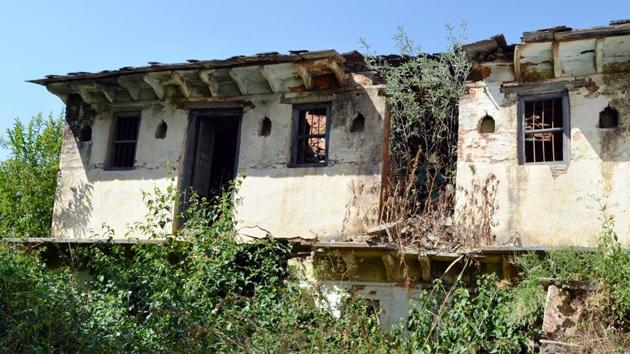In homestay policy, Uttarakhand eyes jobs in hills to check forced migration
With an aim to check forced migration from the hills and rural-urban migration, the Uttarakhand government has introduced a homestay policy under which tourism-based self-employment will be encouraged in rural areas
With an aim to check forced migration from the hills and rural-urban migration, the Uttarakhand government has introduced a homestay policy under which tourism-based self-employment will be encouraged in rural areas.

“The newly introduced home stay policy, under which people will be encouraged to develop homestay facilities will go a long way to ensuring tourism-based self-employment in hilly areas,” tourism minister Satpal Maharaj said.
“The strategy aims to check forced migration (from the hills) by developing tourism as an industry,” the minister said.
“The strategy (under which tourists would be provided home cooked food) will also help provide a platform to popularise the ethnic culture and cuisine among tourists,” he said.
“The policy will go a long way in developing Uttarakhand as a tourism state,” Maharaj said in a statement.
Tourism secretary Dileep Jawalkar said barring the areas falling under municipal corporations, the homestay policy would be implemented in the entire state.
“Under this (homestay) policy (the government) has set a target of developing 5,000 homestay facilities in the state as part of its Mission-2020,” he said.
As per the policy, only those persons, who are domiciled in Uttarakhand, would be entitled to financial benefits to be provided under the home stay scheme.
Besides, the Scheduled Castes, Scheduled Tribes, Other Backward Castes, ex-army men and people with special needs would be entitled to the constitutionally guaranteed reservation under the homestay policy.
In the hilly areas, people wanting to set up homestay facilities would be entitled to a subsidy of up to ₹10 lakh each besides ₹1.5 lakh exemption in interest subsidy till the first five years.
Those who will set up homestay facilities in the plain areas would be entitled to a subsidy of ₹7.5 lakh each besides ₹1 lakh exemption in interest subsidy, under the homestay policy.
Under the policy, it is mandatory for homestay owners to ensure food service for tourists staying on their residential premises. It would also be mandatory for them to spare from one room set to the maximum six-room sets for visitors.
“Any village, which will have more than six homestay facilities, will be developed as a cluster and will also be equipped with infrastructural facilities,” says the policy. These facilities will also include websites and mobile apps.
“A programme will also be introduced soon, under which training will be imparted to home stay owners in keeping with the high standards of the hospitality industry,” Jawalkar said.
As per the policy, villages along the trekking routes would be given special preference as far as promotion of homestay facilities is concerned. “In that connection, district magistrates will soon be directed to identify areas along the trekking routes,” he said.
Those associated with tourism industry welcomed the homestay policy but cautioned that it might not be successful without the state government extending full support to home stay owners in rural areas.
“It (homestay policy) is, no doubt, a welcome move but the government will have to do handholding to ensure that the people in rural areas are able to successfully run homestay facilities,” said Praveen Sharma, a Nainital-based hotel owner.
They (people) would need to be trained to treat visitors with courtesy, maintain hygiene, and also have their residential premises equipped with English toilets instead of Indian toilets.
“Also, the government will have to do marketing for homestays besides equipping villages with facilities like the internet and roads.”
Malika Vridi, a sarpanch of Sarmali Van Panchayat in Munsyari, warned that “if proper handholding is not done by the state government the concept of homestay tourism would end up benefiting the wealthy instead of the rural poor, for whom it is meant.”






